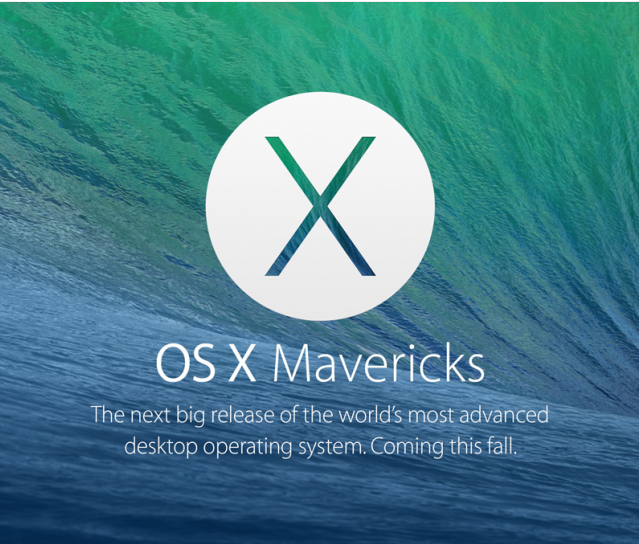
One of the biggest changes to OS X Mavericks from the previous version of Apple's operating system is its price—it’s free. It costs zero, zilch, nada.
Sure, as iterative changes go, it’s not entirely unheard of for operating systems to be free. Windows 8.1 was a free upgrade for Windows 8 users, for example. And Linux has always been free. But Apple has historically charged money for its new operating systems, ranging from $129 (for the original OS X 10.0) to $29 (OS X 10.7 Lion) to $19.99 (OS X 10.8 Mountain Lion).
Given that smartphone OS upgrades (for both Android and iOS) have always been free, are we seeing the end of paid OS upgrades? It sure seems likely, at least for Apple, and perhaps even Microsoft will follow, too.
Mavericks' pricing further confirms what we’ve seen in recent years: traditional PC sales are on the wane, and Apple is a company that makes money off hardware devices and online services rather than its operating systems. It appears that Cupertino now wants to encourage upgrades as a way to push users not only to buy new hardware but also to spend more money on iCloud, iTunes Match, and App Store purchases.
Sure, software is probably a nice little revenue source for the company, but given that the bulk of Apple’s revenue is from iPhone and iPad sales, selling the desktop OS was essentially a rounding error. As Ben Bajarin, an independent analyst, put it: "Consumers now know that an investment in Apple hardware is an investment in future software upgrades at no cost."
Speaking with Ars, IDC analyst Al Gillen asked, “Is this the beginning of a new paradigm in OS pricing? Not sure, although the standard with devices such as smartphones, tablets, and such is that you buy the device and the software is upgraded and refreshed through the device's life with no incremental costs. If you are selling the device, then you are monetizing at that time, and by keeping the users current, vendors ensure they are getting maximum security, performance, compatibility, and so on.”
In Microsoft's case, Apple’s move to a free operating system might put some pressure on Redmond’s ability to charge for particular upgrades. But the bulk of Windows sales are done en masse, either through OEM contracts—which alone constitute 65 percent of the $19 billion in total 2013 Windows revenue—or from additional commercial and retail sales. (Those would include bulk sales to a big company’s IT department or single sales to individuals.)
“Yes, there is some risk to Microsoft if upgrades continue to be free, but the market is changing very quickly and Microsoft has no choice but to move with it or be left behind,” Gillen added. “I believe Microsoft is coming to grips with this new paradigm. It would not surprise me to see future PC OS upgrades from Microsoft and Apple with minimal or zero cost.”
reader comments
162